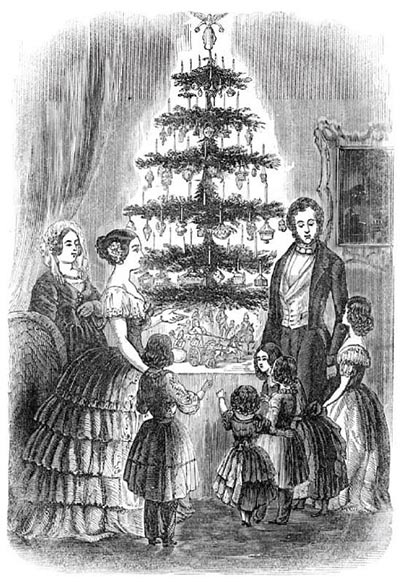Pining for tradition with a Christmas tree


From its pre-Christian roots in Europe to the modern day, the Christmas tree has been an enduring symbol of the holidays. Will your living room host one this winter?
Long before the advent of Christianity, the evergreen was the symbol of everlasting life in numerous ancient cultures. Due to its strength, the Vikings thought it was the tree of the god of light, Balder. The early Romans and the Celtic Druids decorated their temples with fir tree boughs. In northern Europe, pagans used evergreen branches to decorate their homes and doors during the winter solstice as a reminder of the spring to come. Surrounded by an aura of mystery and magic, evergreens were also used to keep away witches and ghosts until the Middle Ages – but these pagan customs weren't appreciated by the clergy.
So how did the tree become a symbol of Christianity? There are many different theories, but most agree that the tradition has its roots in Germany. One legend says that Martin Luther, the 16th-century German Protestant reformer, was the first to bring a Christmas tree into a house.
As the story goes, walking home on a cold winter night, Luther was amazed by the beauty of the stars twinkling among the evergreens. He decided to share this enchanting setting with his family and brought a small tree into his home, then put some candles on the branches to symbolise the stars.

Initially a Germanic tradition, the Christmas tree became popular in Britain centuries later when Prince Albert (who was German) introduced a gigantic Christmas tree at Windsor Castle. He, Queen Victoria and their children were sketched standing around it. Published in The Illustrated London News in 1848, this drawing widely contributed to the fad of Christmas trees in Britain and, in syndication two years later, among the fashionable set on America's East Coast. Thus was born the modern Christmas tree, trimmed with its flamboyant ornaments and surrounded by gifts.
Today, Christmas trees are all around the world, whether as a symbol of Christianity or not. But merry as it is, this tradition has its environmental consequences, especially when it comes to the artificial tree industry. Here are a few alternatives so you can create your own clever, stylish and sustainable tree.




































